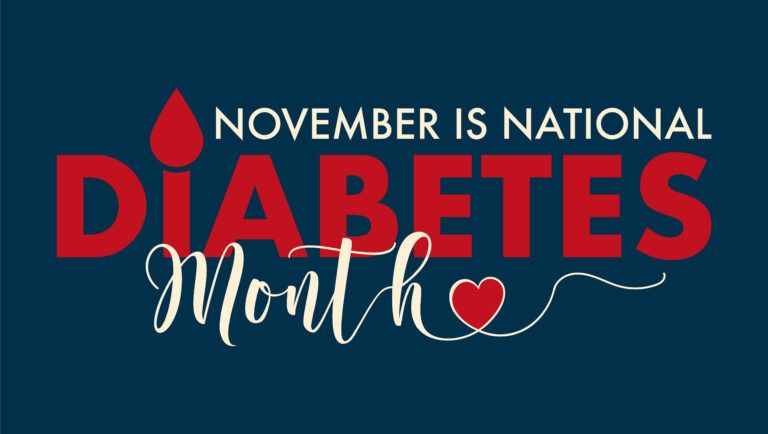November 2024 – American Diabetes Month

At Uintah Basin Healthcare, we have excellent Diabetes Education and Training. Please click here to learn more about what we offer and the providers taking care of those with diabetes.
Below is a portion of information from the National Institute of Diabetes and Digestive and Kidney Diseases about this important awareness month.
November is National Diabetes Month, a time when communities across the country seek to bring attention to diabetes. This year’s focus is on taking action to prevent diabetes health problems.
Diabetes is a disease that occurs when your blood glucose, also called blood sugar, is too high. It affects about 38 million Americans, including adults and youth. Diabetes can damage the eyes, kidneys, nerves, and heart, and it is linked to some types of cancer.
But there’s also good news: Taking charge of your health may help you prevent diabetes health problems.
Know your risk for developing diabetes.
You are more likely to develop type 2 diabetes if you have overweight or obesity; are age 35 or older; have a family history of diabetes; are African American, American Indian, Asian American, Hispanic or Latino, or Pacific Islander; are not physically active; or have prediabetes.
Manage your blood glucose, blood pressure, and cholesterol levels.
Preventing diabetes or managing diabetes as soon as possible after diagnosis may help prevent diabetes health problems. You can start by managing your diabetes ABCs.
- A is for the A1C test that health care professionals use to measure your average blood glucose levels. Some people with diabetes also use devices to track their blood glucose throughout the day and night.
- B is for blood pressure.
- C is for cholesterol.
Ask your health care team what your ABCs goals should be.
Take small steps toward healthy habits.
Lifestyle habits such as planning healthy meals, being physically active, getting enough sleep, and not smoking may help you prevent diabetes or manage your diabetes ABCs. You don’t have to do it all at once. Start slow and build healthier habits from there.
Take your medicines on time.
Remember to take your medicines even if you feel healthy. Talk with your doctor or pharmacist if you have trouble taking your medicines on time or at the correct dose.
Reach or maintain a healthy weight.
If you have overweight or obesity, ask your primary care provider if healthy eating, physical activity, or other weight-loss treatments may help you manage your weight.
You may be able to prevent or delay diabetes by losing 5 to 7 percent of your starting weight. Use the Diabetes Risk Management Calculator to determine how much weight you can lose to help reduce your risk of developing type 2 diabetes.
If you are interested in learning more, please click here.

